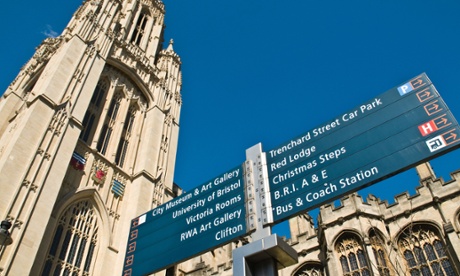
New undergraduates at the University of Bristol have received a “consent quiz” as part of their induction process. The quiz (you can try it yourself here), created by Somerset and Avon Rape and Sexual Abuse Support (Sarsas), aims to get students thinking about sexual consent and to dispel some of the common myths that surround the subject.
This week, Sarsas staff also delivered training to 180 student volunteers who will follow up on the quizzes by delivering consent workshops to new students in their halls over the next three weeks. As the patron of Sarsas, I have seen first-hand the vital frontline work they carry out to support survivors of sexual abuse.
With campaigners still calling on the government to make sex and relationships education compulsory in schools, many young people are arriving at university without basic knowledge of topics such as sexual consent and healthy relationships.
Lisa Benjamin, volunteer and training officer at Sarsas, says: “It’s particularly necessary because of the misconceptions around consent; the traditional idea that the absence of a no means yes. It’s about reframing the decision so people feel clear about the idea of gaining enthusiastic consent from their partner and having healthy discussions about what they both want and are comfortable with.
“It’s very sex positive, it’s not about telling people everything is bad and everyone is dangerous, it’s about helping people have the tools to feel confident having discussions with their friends and partners about this sort of thing.”
The move comes at a critical moment for UK universities, with a recent investigation into “lad culture” by the NUS finding that many institutions lack a policy to address the problem.
NUS Women’s Officer Susuana Amoah said: “We, the student movement and society as a whole, are no longer in a position where we can continue to allow the issues women face on campuses across the UK and beyond to be ignored.”
The government has ordered an inquiry into how to reduce violence against women at universities, but the question of exactly what the solution should look like remains up for debate. Saras and the University of Bristol may well have the answer.
While student unions across the country have been doing excellent work on consent and lad culture for some time, there have been concerns that universities have been slow to step up and get directly involved, with some cases suggesting that institutions prefer to shy away from issues of sexual violence rather than support students who are keen to tackle it.
Benjamin says: “It might seem like a sensitive subject that universities have anxiety about approaching, but I’d really recommend reaching out to their local Rape Crisis or sexual assault referral centres, because there will be a lot of expertise in their area that they can draw on.”
What is particularly encouraging about this case is the joined-up approach. Benjamin explains that Sarsas was approached directly by both the University of Bristol and the University of the West of England (UWE), with “dedicated senior staff members at both universities” aware of the problem and keen to seek expert help in tackling it.
The vice chancellors of both universities have put out a joint statement in association with their student unions, committing to a zero-tolerance approach to sexual violence and harassment.
This spirit of cooperation between students, student unions, university administration and local expert groups feels like a new and positive step forward in the battle against sexual violence on campus.
As we continue to tackle a problem that affects 37% of female and 12% of male students, this is what change should look like.







